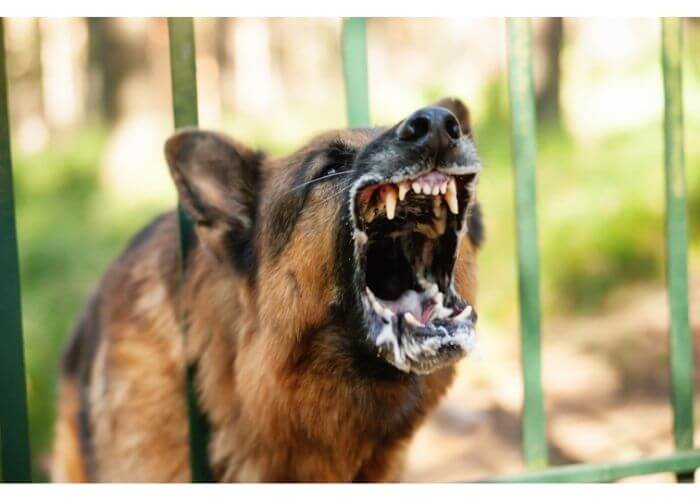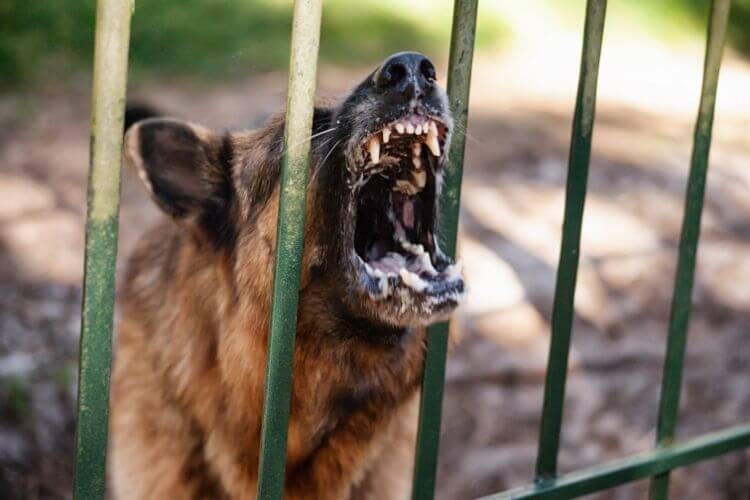I recently overheard some policemen discuss the unique characteristics of German shepherds. It didn’t bother me until I heard them say, “German shepherds are among the most vocal dogs. Depending on the dog, they can make loud sounds of about 106 decibels!” I heard never imagined any dog could be such vocal. So, I sought to know how that would be possible.
Here’s what I learned.
Why are German shepherds so vocal?
Like other dogs, German shepherds are vocal because they descended from wolves! Also, they were herding dogs who could detect an intruder who was miles away and raise the alarm by barking. Anxiety, hunger, thirst, separation, fear, sexual pressure, and boredom make German shepherds vocal. German shepherds speak through barking, howling, and groaning.
German Shepherd’s History: Where Did It All Start From?
German shepherds were initially used as herding breeds. Whenever the flock was in danger, they could bark to scare away the intruder.
Besides, these dogs can tell when an animal or person is getting closer to where they are. They detect their smell while they’re miles away.
Consequently, the German shepherd begins to bark endlessly to warn you of incoming (potential) danger. They also bark to alert the coming animal or persons that they are likely to be attacked if they don’t cooperate!
This character distinguished them from other dogs.
With time, police forces started to train the German shepherd for use in military purposes. Using their strong sense of smell, German shepherds could pass vital information to their masters by barking profusely. For example, when indicating where an intruder is hiding.
It’s vital also to note that all dogs howl. Cesar Milan, who is a renowned dog expert, says that dogs descended from wolves. Wolves’ way of communication is howling. “Like father like son!” It’s, therefore, natural for German shepherds to howl. It’s their way of communication. That’s how they express their anger and excitement.
Why Are German Shepherds So Vocal?
Of course, the fact that German shepherds are vocal doesn’t mean that they should howl and bark all the time. There are various reasons why they do it and do it as if their lives depend on it.
You Reinforced The Behavior
“A habit is a disease!” When your buddy started being so vocal, you didn’t bother to stop him. You probably paid attention to what he was saying. As such, he believes he needs to be vocal to get anything he wants.

Not everything needs your attention. For example, if he is vocal because he wants to sit on your lap, you would rather deny him that privilege if it’s not necessary.
Use commands to warn him of the habit. Such commands can be ‘stop’ and ‘no’. Whenever he obeys, offer treats. You can also tap him to show him you’re sincerely impressed by his obedience.
Pain
If your German shepherd isn’t vocal all the time, he could be in pain. When in pain, he may look restless, unable to sleep, walk, stand, or eat. This might make him so vocal. His energy could also be failing him at this time. So, he can only groan.
My German shepherd behaves this way most times when he is in pain. I know it because he refuses to get up when I call him. To make me know that he heard but can’t make it, he groans. It’s heartbreaking, but I get the point altogether and act fast.
Frustration
Like humans, German shepherds have emotions. However, their emotions may not align with ours. For example, they may want to go out while you want to stay indoors. They’ll howl to express the desire to go out.
But you’re not interested. What’s next? Groans of frustration!
Excitement
Excitement makes a German shepherd so vocal. Depending on the dog, they can jump, run toward you or bark.
They can be excited because you gave them the food they love, you came back home from a long day in the office, you gave him a treat, and the like.
Need for Food or Water
Delaying your German shepherd’s meals could make him vocal. We all know how desperation for food makes us act abnormally. Your German shepherd is no different!
In most cases, he runs to his place of food and water and becomes vocal. He is simply saying he needs food or water. These dogs are active breeds.
That means they use a lot of energy every day. As such, they need enough food and water. Ensure, therefore, that your German shepherd dog has enough food and water.
Anxiety
Regardless of their intelligence and ability to attack intruders, German shepherds can get anxious. This mostly happens when they notice their lives are in danger, for example, during floods, earthquakes, and thunders.
It’s good to reassure them that it is going to be okay and that you’re with them.
Seeking Attention
When denied enough attention, German shepherds demand it. They can howl, bark, and groan. They do this if they’re used to spending most of the time with you. When, for example, you walk to the bedroom and leave him in the living room, he comes where you’re and groan.
Also, if you talk too much to him, then spend an hour quietly reading a newspaper, watching a movie, or chatting with friends, he will groan! At least to have your attention for a minute.
Sexual Pressure
German shepherd dogs who are in heat groan or bark often. The desire to satisfy their sexual desire keeps them restless. If they cannot find a mate, they can groan for a long time.
If you don’t intend to breed him, it’s necessary to neuter him. Otherwise, he groans until his desire to mate goes down. It can last up to three weeks.
Relaxing
Some German shepherds may groan when stretching their bodies in the morning after waking up. They may also groan after lying down for long hours.

It’s a way of relaxing their bodies.
Should It Concern You When Your German Shepherd Becomes So Vocal?
It can be a matter of concern if there’s no good reason for being vocal. Before you punish, ignore, or command him to stop, it’s necessary to know why he is vocal.
According to your findings, take the necessary precautions.
Is It Abnormal?
If your German shepherd has suddenly started being vocal, definitely, there’s something he is communicating. Check his behavior when he starts to be vocal. If he doesn’t seem to be fit health-wise, consider visiting a vet.
If, however, he looks healthy and energetic, stay around and see if there’s anyone coming or anything weird going on around that place.
Upbringing
Did you adopt your German shepherd and notice that he is so vocal, unlike your other German shepherd dogs? Carefully watch him for at least three days to 3 months.
Patricia McConnell (Certified Applied Animal Behaviorist (CAAB) Emeritus) says that it can take a minimum of 3 days and, at most, three months for a dog to adjust to his new home. During this time, your adopted dog might feel totally uncomfortable in his new home; hence get more vocal.
Show him love and be patient with him. If, however, the habit persists, it’s likely he was not trained well. Begin to offer professional behavioral training.
Final Thoughts
Groaning, barking, and howling, unless is something unusual with your German shepherd, should not cause any alarm. Unlike other dogs, German shepherds are naturally vocal.
Spending more time with him makes it easy for you to understand each other. You can quickly tell what he means and what to do. If, however, it’s something unusual, seek the help of a vet or a behavioral trainer.


